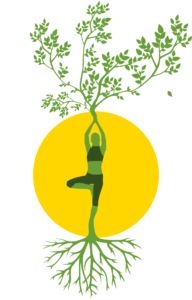Empowerment is what ideally punctuates every rags-to-riches story. These stories sound cliché but the purpose of sharing this one here is different than what is usually shared.
I have seen life at worst in my growing years. There was a time when my family did not have enough to make ends meet. I often remember when we did not have enough to eat. Yet each day that I survived, despite all the hardships, and trudged my way toward success – I was thankful for every new sun that rose through my window.
A new day meant a new start. As I look back today, I remember there was a kind of empowering gratitude that would nudge me awake, get me through the day of endless struggles (and failures), and fetch me back to my home for another sleepless night.
But for every day that kept alive my conjecture of a bigger, prosperous picture, I was grateful. Again, that can be cliché and tough to believe, but I promise you it is true.
The word “gratitude” means grace, graciousness, and gratefulness. New research in positive psychology zeroes in on one activity that can help people derive the greatest possible benefit from treatment in the shortest time possible in their quest of strengthening mental health; and that is simply being grateful.
That is true, indeed. Based on my experience and science combined, it is unreal to think how being genuinely thankful and appreciative of anything or everything you have can help you live a longer life, one that is successful as well.
Did you know scientists have concluded that people who tend to maintain close bonds with friends and family tend to live longer? In extensive research by a group of researchers from Brigham Young University, 148 studies spanning back to the early 1900s were reviewed. These studies collectively encompassed 308,849 participants and monitored their well-being over an average period of 7.5 years.
The findings of this comprehensive analysis were striking; individuals with robust social connections boasted a 50 percent higher likelihood of still being alive at the end of this period compared to their isolated and lonely counterparts.
And that is not the best part yet. The research suggested a fulfilling social life meant long-term survival on par with quitting smoking, even as far as exercising and overcoming obesity.
There is a term called “stress buffering.” Hundreds of studies in the past years have documented the social, physical, and psychological benefits of gratitude, even for groups of people amidst seemingly irrevocable adversities. These include people on death beds, women with breast cancer, and those coping with chronic muscular diseases.
The empowerment in gratitude goes beyond imaginable results. When you are feeling appreciative of the life you have built, or the people around you, or the opportunities you have cashed in on; you get this rush of dopamine and feel-good hormones that effectively eliminate free radicals in your body – the main culprit to aging faster.
A good social life, positive approach to thinking, and self-talk that focuses on the aspects you are proud of empower you with a spiritual energy that sets everything else correct by default.
The holiday season is a time to look forward to a cozy and festive month, but for some people around us, it can be tinged with sadness, anxiety, or depression. Thanksgiving can certainly lift the spirits, but you must go a bit deeper than cooking turkey and arranging a get-together.
Here is how I kept myself sane for all those years, and here is how this tried and tested list of activities can help you feel better, and importantly, more grateful than you are feeling now…
I call them the three A’s of gratitude.
#1. Changing your attitude mindfully.
An “attitude of gratitude” is the highest way of thinking and can sometimes be the hardest. To be very honest, gratefulness must be in your attitude towards life and its events. No matter the obstacles or challenges in your way, there is always something to be grateful for. Many people have a natural tendency to complain, with an “this is awful” mindset that is expert at finding the negative in every situation.
Changing your attitude requires strength and positive self-talk. You must empower your mind to turn a blind eye to the negatives and wire your brain to focus on and improve the positives. A simple example would be applying a positive twist to “I’ve never done it before” and changing that to “It’s an opportunity to gain experience, and who knows, that might end up big?”
The same goes for overwhelming your mind with not only negative thoughts but also thoughts for the future and past. Mindfulness is rare in today’s hyperactive world, and there has not been a need for it more.
#2. Approval – of the bad and good days
If you are grounded enough to accept and embrace the good and bad occasions in your life, you have what it takes to be genuinely grateful. People who tend to run away or hide themselves when life strikes are those who refuse to see things as they are, thereby working themselves up for the brighter side and pushing away the darkness thinking it will fade away on its own.
But that is where they are wrong. In a never-ending loop of denial, we fail to be grateful for the minute things amidst the overpowering challenges. Thus, cultivate approval of everything – be it a termination, a promotional hike, a change of city, or a change of heart – to become grateful for when things are better.
#3. Admiration of yourself and others
I cannot stress the importance of self-care enough in cultivating empowerment or, in other words, the feeling of being free and grateful. Admiration played a pivotal role in my life. Being a single mother was tough, and as everyone rightfully believes, parenthood tends to make us forget ourselves fast enough. Juggling a struggling career and kid was a herculean task, but I did not forgo my self-care routines at any point in my life.
You must admire yourself enough to be grateful for who you are and how your life is. If you are not happy with yourself, you can forget about being happy with anything else. Unhappy people, in consequence, hop on a vicious cycle of hunting happiness in places and with people who cannot give it to them. They end up being irritated, ungrateful, and bitter.
We can identify the bitter people around us within seconds. They have a particular way of thinking and speaking. We can also do the same for the grateful souls around us. They are like a bright side to everything, just like windows opening in a dark room with their thoughtful perspectives and positive speech.
Besides the obvious benefits of gratefulness, science really has proven that such an approach helps significantly prolong your life.
Let us start being grateful from this point onward. Share one thing you are thankful for today. Give it good thought!





